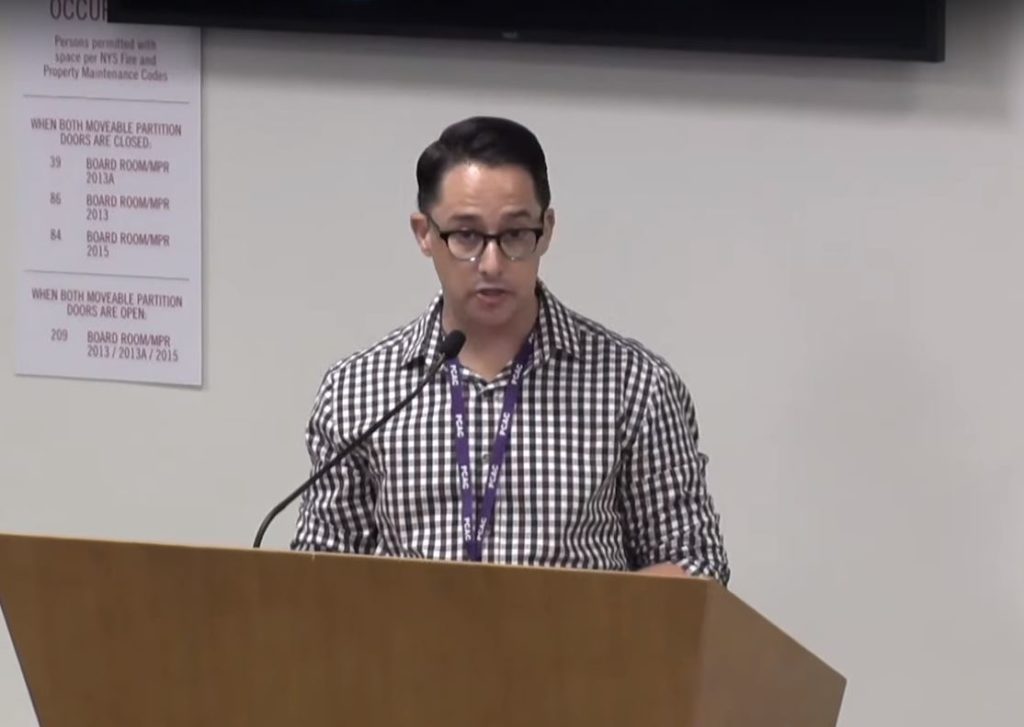At July’s MTA Committee and Board meetings I testified about the MTA’s Transformation Plan as it relates to staff retention, productivity, and the need for internal and transparent performance metrics. Retaining a knowledgeable, productive, and supported staff is crucial — especially as the MTA prepares to undergo the first major reorganization since it was formed.
Staff retention at the MTA is already a problem, and will be made worse by the headcount reduction proposed in the reorganization plan.
Over the last few years, we have seen how the loss of key MTA staff is playing out and it’s not pretty. Too often, it’s the best people in critical positions who leave. As more senior staff retire and younger staff leave for greener pastures after just a few years, there is and will continue to be a negative impact on riders unless steps are taken to slow the “brain drain.”
The 2010 cuts, followed by the constant whiplash from leadership change, has made staff retention that much harder. When Governor Cuomo hired three extremely strong agency leaders and their visioning plans were released, there was hope that the whiplash would stop… but here we are! The infrastructure and operation of our vast system REQUIRES informed and knowledgeable staff. Attrition has severe and unintended consequences: needed positions do not get filled; institutional knowledge gets lost; and important positions focusing on accountability are no longer to be found.
A full and transparent review of the effects of the hiring freeze, attrition, and retirements by departments and management levels should be undertaken and analyzed.
We strongly encourage an analysis of the full impact the MTA hiring freeze is having on retaining its professional workforce, and what the proposed headcount reduction will mean to service. Such an analysis must be done quickly to help determine whether simply cutting jobs is the best way out of the growing deficit. It is possible that with the dream team the Governor brought on – Cathy Rinaldi, Andy Byford, Phil Eng, Janno Lieber and Pat Foye – there is another way to go… a thoughtful restructuring that will reduce the MTA’s deficit through improved reliability, ridership growth, fare flexibility, congestion pricing, value capture, and more. Unfortunately, the AlixPartners’ plan is a rushed response to institutional problems that have taken years to develop. Nearly nine million people rely on the subways, buses and commuter rails every day. Steps to implement the still-developing reorganization must be thoughtful and deliberate to get riders where they need to go.
The MTA relies heavily on a knowledgeable, skilled and supported staff at all levels.
The MTA’s commitment to retaining and developing talent and establishing succession plans is crucial to maintaining a productive and functioning transportation agency. Also crucial are metrics that measure processes and performance. For example, the MTA’s Enterprise Asset Management team developed performance metrics in response to federal requirements, but their internal purposes are far reaching – internal planning and external funding needs are fact-based and metric driven.
Critical and publicly available performance metrics must also be developed to make it easier to understand the unintended consequences of the vacancies that have been occurring as long-time employees head for the door. The burden those vacancies have on staff – and the work that isn’t being done – also have serious consequences for riders.
Performance metrics are not just necessary for service and process performance, they will be needed to measure the value of AlixPartner’s recommended changes.
Given the large-scale changes that are being proposed, it is critical that the users of the system have the opportunity to provide meaningful input into the reorganization plan. They must be included in the decision-making process. The best way to do that is through a 45-day public involvement process that includes public forums, with significant review and consideration in the final plan. PCAC stands ready to assist the MTA in this effort to ensure that the people who use the system have their voices heard.
